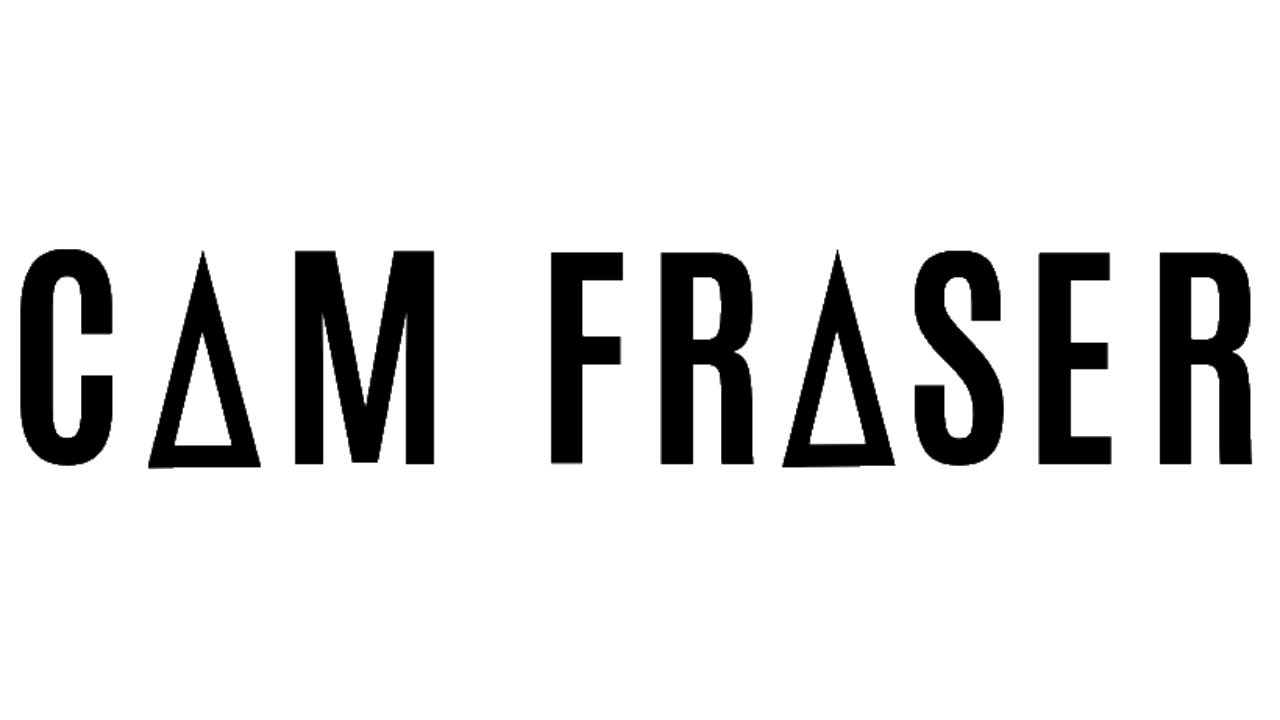Where did the term toxic masculinity come from? I’ve seen many people talk about toxic masculinity, often attributing the phrase to feminists:
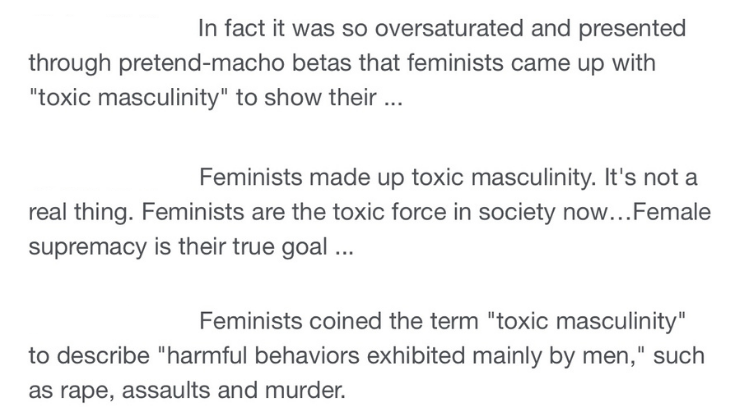
The phrase toxic masculinity was actually coined by psychologist Shepherd Bliss in the 1980s. Bliss was a founder of the mythopoetic men’s movement, a male-centred response to second-wave feminism.
I’ve also seen many men’s coaches publicly denounced the phrase, arguing that masculinity is not toxic:
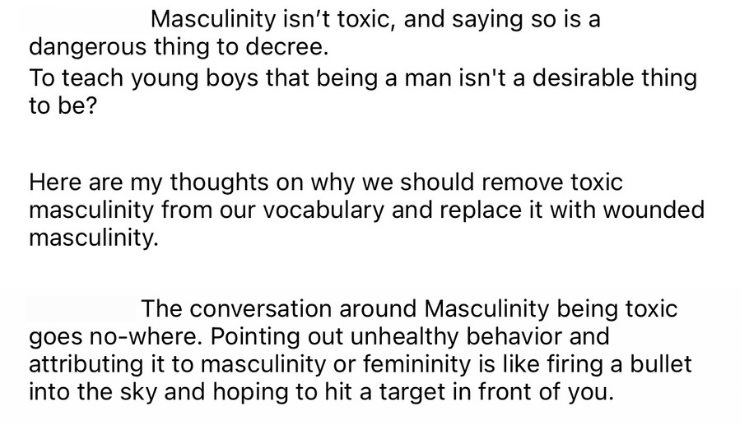
I agree with them that masculinity is not toxic (and I agree that we should use a better concept - I’ll speak about that in a moment), but that is not what the phrase toxic masculinity means.
In sociologist Michael Kimmel's 1995 book, The Politics of Manhood, Bliss explains in an essay:

Further clarifying:

This is the exact opposite of how the phrase is interpreted today.
Why is the phrase interpreted differently than Bliss’ original definition? Why do people think that toxic masculinity means masculinity itself is toxic?
My opinion is that this misinterpretation has been deliberately promulgated:
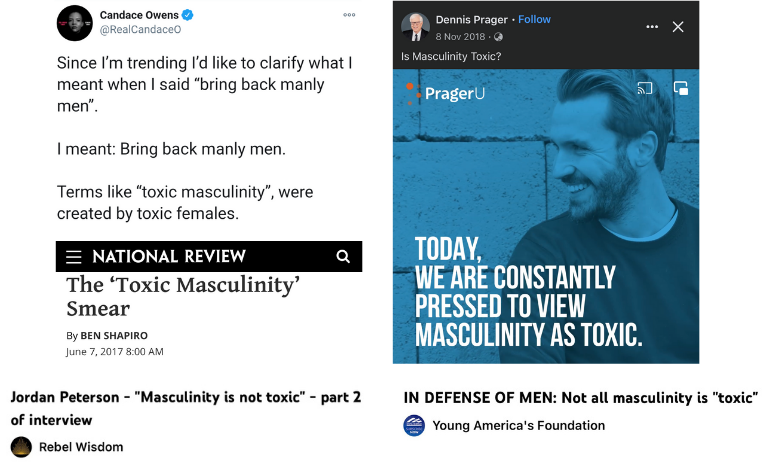
My opinion is certain people co-opted and disingenuously interpreted Bliss’ notion of toxic masculinity to push their culture war narrative that masculinity is under attack. Bliss has also distanced himself from the phrase.
In a 2014 Reddit discussion, Bliss wrote, "I did use the term ‘toxic masculinity,’ among others, to differentiate forms of male behaviour and being…" Adding, "It has been a while since I have actually used the term ‘toxic masculinity,’ though I feel that it has historical importance and describes a reality."
As Bliss explained back in 1995, "toxic masculinity" does not mean masculinity is toxic. Journalist Amanda Marcotte notes, "… the modifier 'toxic' inherently suggests that there are forms of masculinity that are not toxic."
Regardless of what Bliss intended, it appears that the definition of toxic masculinity has irreversibly changed. The widespread prevalence of interpreting it to mean that masculinity is toxic demonstrates the effectiveness of culture war rhetoric.
This is one reason why I personally do not use the phrase. I also think it misses the mark.
Toxic masculinity and similar phrases - wounded masculinity, immature masculinity, undeveloped masculinity, etc - all describe an expression of masculinity that is undesirable, rather than naming the reasons why there is this expression in the first place.
Which is why I prefer to use a concept known as the "Act Like A Man" Box, created by activist Paul Kivel in the 1980s:
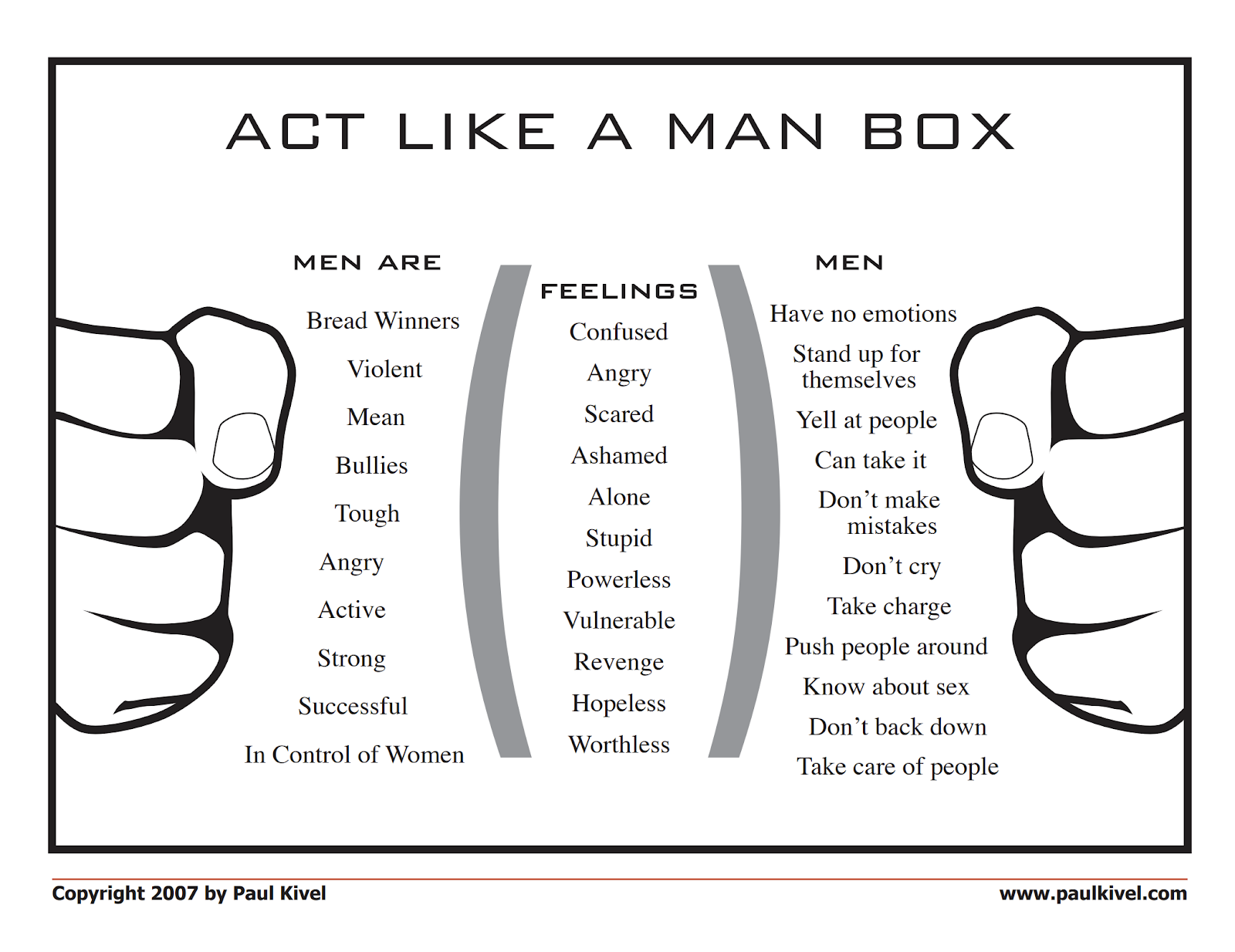
The "Act Like A Man" Box highlights the culture surrounding masculinity. Writing about the ways in which men are socialised in his 1992 book, Men’s Work, Kivel explains:

Adding:

Which points to a broader cultural issue from which toxic masculinity manifests.
If you're looking for someone genuinely arguing masculinity is toxic rather than the strawman that toxic masculinity means masculinity is toxic, I suggest reading some of radical feminist John Stoltenberg's work:

Stoltenberg asserts that manhood is predicated on what he calls game theory, a better-than/lesser-than oneupmanship which identifies certain men who are "doing masculinity" superiorly.
I digress. While I agree with my fellow men's coaches that toxic masculinity isn't a useful phrase, I think I agree with them for different reasons. In any case, the phrase has become so popular yet so mischaracterised that it needs to addressed.
As Reece MacKinney, a senior at Poudre High School, says in his TEDx speech, "toxic masculinity [is] a phrase that makes it too easy for boys and men to say, 'That's not me!'"
I like the "Act Like A Man" Box concept but there is other language out there, like hegemony and precariousness. Let's broaden the conversation.
